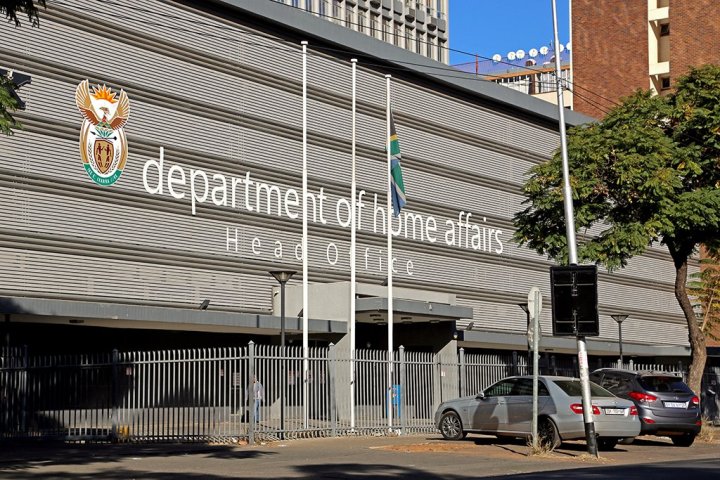Home Affairs Launches Smarter ID Verification System: Private Sector Fees to Rise from April
To support the ongoing maintenance and development of the NPR and associated digital systems, Home Affairs has introduced a new fee structure for the verification service.

- Country:
- South Africa
In a major move to bolster national security, streamline identity verification, and enhance digital transformation efforts, South Africa’s Department of Home Affairs has officially launched an upgraded version of its digital verification system. This crucial system—used by both public institutions and private sector entities—allows for real-time identity checks by matching biometric data, such as fingerprints and facial recognition, against the National Population Register (NPR).
This landmark upgrade, announced by Home Affairs Minister Dr Leon Schreiber, addresses longstanding inefficiencies in the previous system and is being heralded as the most significant overhaul of Home Affairs’ digital services in over a decade.
Faster, More Accurate Identity Checks
For years, the old verification infrastructure suffered from severe reliability issues. Users, including major government departments like the National Treasury and SASSA, as well as banks and insurance companies, reported failure rates of up to 50% when attempting to verify clients’ identities. Additionally, delays of up to 24 hours were common, and even successful responses often contained errors that required manual cross-checking.
Following months of intensive technical redevelopment and testing, the Department has confirmed that the new system now operates at dramatically improved speeds and with an error rate of less than 1%. In practical terms, this means near-instantaneous verification of identity credentials with a high degree of reliability—an essential feature for institutions that rely on accurate identity checks to process grants, open bank accounts, or onboard new clients.
“This new verification system marks a technological leap forward,” said Minister Schreiber. “It’s faster, more secure, and far more reliable than anything we’ve had before. It will enhance service delivery in the public sector and unlock efficiency and growth opportunities for private businesses.”
Government Stays Free—Private Sector to Pay More from April
To support the ongoing maintenance and development of the NPR and associated digital systems, Home Affairs has introduced a new fee structure for the verification service. For the first time in over ten years, private sector entities will face increased fees for using the verification system, starting from 1 April 2025. These fees have been formally gazetted following concurrence from Finance Minister Enoch Godongwana.
However, public sector users, including a wide range of government departments, will continue to be exempt from fees, ensuring that core public services like social grant distribution and public healthcare remain unaffected.
“This approach allows us to invest in a secure, reliable digital identity ecosystem without putting additional pressure on public finances,” Schreiber noted. “Private companies, who directly benefit from a functioning verification system for their business operations, will now play a greater role in funding its upkeep.”
Enabling a Digital Future for South Africa
The revamped verification platform forms a cornerstone of South Africa’s broader digital identity agenda, as outlined by President Cyril Ramaphosa during his most recent State of the Nation Address. The upgraded system sets the groundwork for the rollout of secure digital IDs, which will make it easier for citizens to access a range of services—both public and private—without needing to present physical documents.
“This is about more than just faster ID checks,” Schreiber said. “It’s about building a modern, digitally-enabled society where access to services is seamless, identity is secure, and dignity is protected.”
The upgrade also serves as a stabilizing force for South Africa’s economy. With banks, insurance providers, telecoms, and other industries relying heavily on verified client identities, any disruptions to the verification service have historically caused operational bottlenecks and customer service delays. The new system is expected to prevent such issues going forward.
“When this system was down or inaccurate, it created massive headaches for businesses and government agencies alike. This upgrade ensures smoother operations, better compliance, and ultimately, a better experience for South Africans,” Schreiber said.
What’s Next?
The Department of Home Affairs is now preparing to roll out access to the upgraded system to all registered clients across government and industry. Information sessions and onboarding support will be provided to ensure a smooth transition for users.
For South Africans, the real-world impact of this upgrade will be felt in shorter queues, quicker approvals, and fewer identity-related delays when dealing with government offices, banks, and service providers.
“This is a pivotal step in our journey toward a truly digital Home Affairs,” said Schreiber. “By investing in our population register, we are investing in the infrastructure that will empower every South African.”
Key Takeaways:
- Verification failure rate reduced from up to 50% to below 1%.
- Response times cut from 24 hours to near-instant.
- Private sector fees to increase from 1 April 2025.
- Public sector continues to receive free access.
- Part of broader digital ID vision for South Africa.
The Department of Home Affairs’ new verification system is a bold stride into a more connected, secure, and service-oriented future—one where identity is digital, reliable, and ready to power progress.










